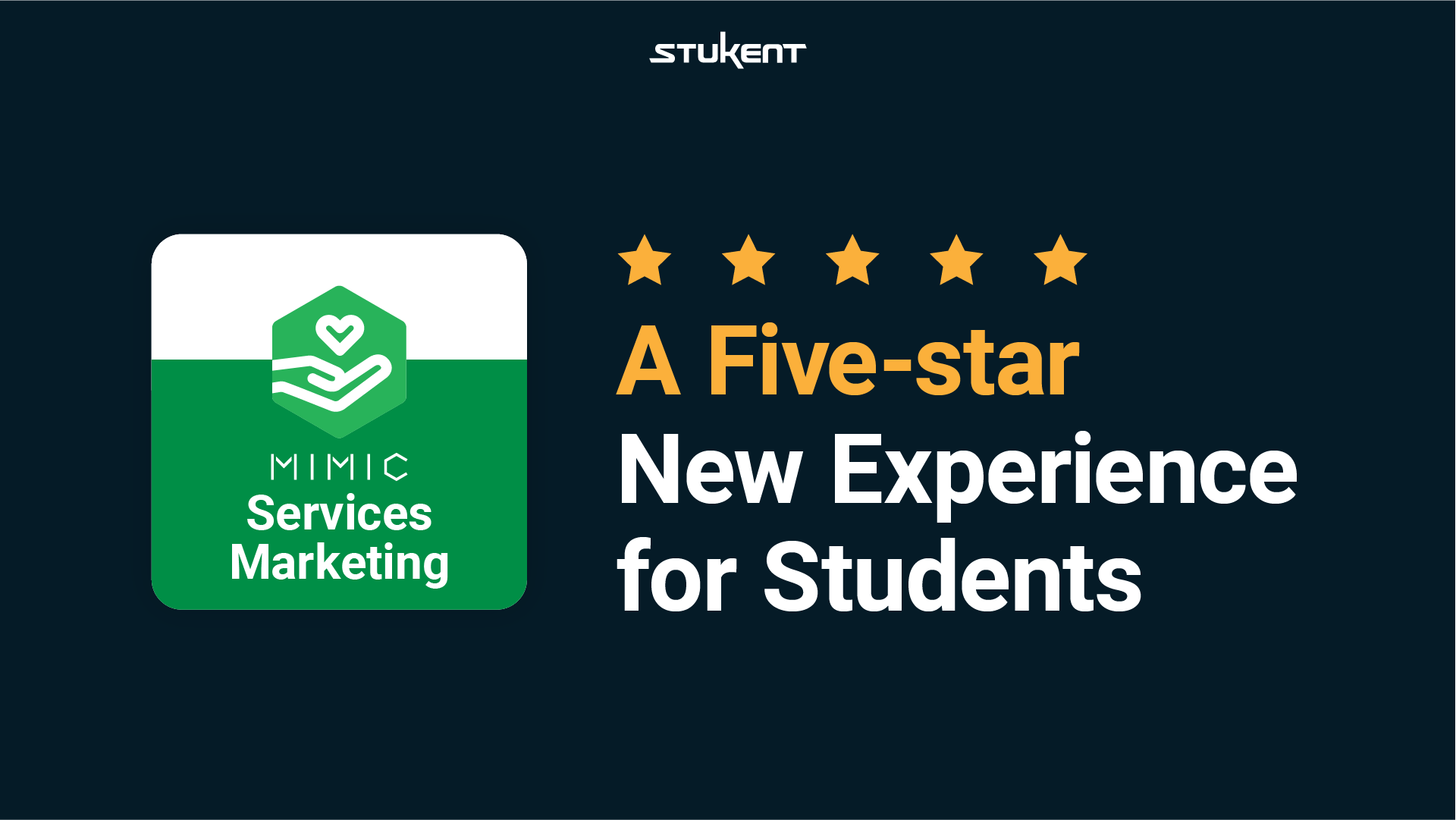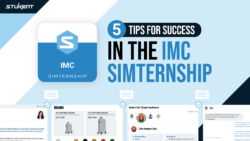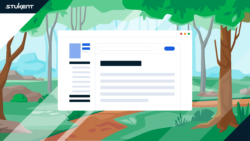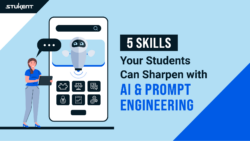Our world runs on services — the good, the bad, and the exceptional. While some brands offer amazing customer service experiences, others leave customers disappointed … or worse, feeling frustrated and angry. The marketing students of today need to understand how services marketing can impact their brands and businesses tomorrow, which is why Stukent created Mimic Services Marketing.
In this all-new simulation, students will design a subscription service, manage inventory shortages, enhance customer service standards, react to competitors, address ethical issues, and much more. Mimic Services Marketing is a powerful way to prepare students to deliver an exceptional brand experience each and every time.
During April’s 4-in-1 Launch Event, Stukent showed off the features and benefits of this new simulation. Let’s take an in-depth look at Mimic Services Marketing!
Why Mimic Services Marketing?
Mimic Services Marketing asks students to create memorable experiences for their customers that differentiate their brands from the competition. Few universities currently offer services marketing — it’s a rapidly expanding subject in the field, one that will continue to grow thanks to Dr. Maribeth Kuzmeski and Jerry Rackley, who authored the courseware and served as the subject matter experts on the simulation.
Dr. Kuzmeski and Rackley want to change how academia approaches services marketing, as services are an integral part of our world. And this simulation teaches students to create experiences that will resonate with customers for years to come.
“[This] practical application bridges all the great research that the pioneers in the services marketing world have done,” says Rackley. “It makes it more applicable and shows students what [services marketing] looks like in the real world.”
How Mimic Services Marketing Works
In Mimic Services Marketing, students take on the role of a marketing manager for a subscription service at Buhi Supply Co., a fictitious bag company. Buhi has just acquired a company called Soft-Ts, a premium sustainable shirt brand with an optimistic and thoughtful brand voice. Soft-Ts is an ideal fit for the Buhi brand, which focuses on designing attractive, functional bags for Millennial and Gen Z consumers.
When students enter the simulation for the first time, they will start at the introduction round. Here, Buhi’s vice president of marketing, Edmundo Gamero, will welcome students to the team, acquaint them with the company, and provide helpful hints for the upcoming rounds.
At the beginning of each round, students should check their Inbox. Their supervisors at Buhi will send them memos and reports with the information needed to complete their work.
In Round 1, students will receive market research from their supervisor at Buhi. Students should analyze this information, then use it to set features and recommend service standards for the Soft-Ts subscription program.
In Round 2, the Notifications Hub appears, asking students to answer questions from simulated coworkers on Buhi’s customer service team and from Soft-Ts subscribers. The Notifications Hub serves as an interactive knowledge check — if students don’t select the correct answer, the simulation tells them where they can find the ideal response in Rackley and Kuzmeski’s “Services & Experience Marketing” courseware.
In Rounds 2 through 10, students will address customer service issues on behalf of the Soft-Ts brand. At the beginning of Round 2, their supervisor delivers some distressing news — a hurricane in Asia has destroyed 30% of Soft-Ts’ incoming orders. Students need to choose a recovery strategy that fits their customers’ needs and the company’s budget.
Throughout Mimic Services Marketing, students will work to improve Soft-Ts’ processes, including customer service, shipping and packaging, and quality assurance. The simulation also challenges them to address product defects, ethical issues, negative press, and the competition.
In each round of the simulation, students also have the option to change the features of their subscription service to meet customer expectations. Or, if their customers are satisfied with Soft-Ts’ current features, students may choose to keep their features from round to round, too!
Once students have finished addressing recovery strategies, process improvements, and service features, they can click “Run Simulation” to see their results. Students get immediate feedback on their work, including their total revenue, profit, subscribers, level of customer satisfaction, and churn rate.
Finally, Mimic Services Marketing asks students to consider key marketing functions. Students will evaluate social media ads, select landing page content, create an email for Soft-Ts subscribers, write a call center script, and choose answers for a Frequently Asked Questions page.
And that’s Mimic Services Marketing! With this engaging simulation, you can give your students stand-out experiences to put on their résumés and prepare them to deliver five-star customer experiences, each and every time.
To schedule a demo of Mimic Services Marketing with a Stukent course consultant, book an appointment online. Or, see the new simulation for yourself and get FREE instructor access to Stukent’s services marketing courseware and simulation on our website.






